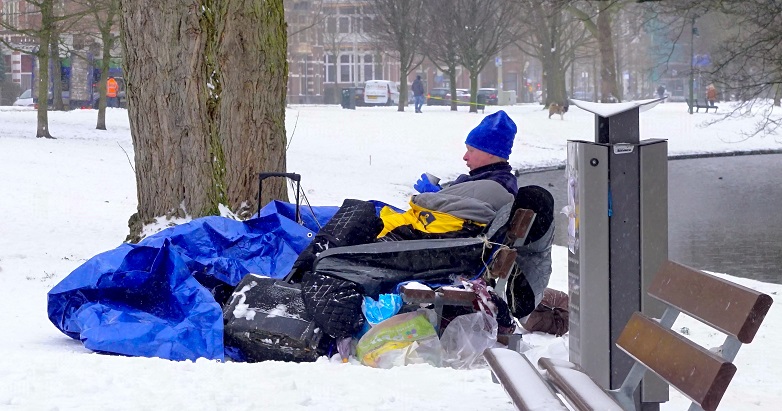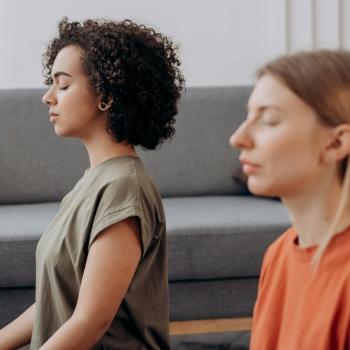Housing for people experiencing addiction and homelessness is a matter of life and limb. When temperatures plummet, freezing to death is a very real possibility. For various reasons, not all unhoused people can get into cold-weather shelters. As a behavioral health specialist who works with the homeless population, I have had clients who lost limbs due to frostbite. Winter is an unforgiving enemy that leaves wounds and takes lives.

A Matter of Life and Death
According to the National Care for the Homeless Council, “Seven hundred people experiencing or at risk of homelessness are killed from hypothermia annually in the United States.” Last winter, a member of my own family froze to death in the snow after taking forty times the lethal amount of methamphetamine. For me, it’s personal. As people of faith, we should make housing for people experiencing addiction and homelessness one of our top priorities. Three years ago, I wrote the following about one of my clients:
Housing Can Mean Life
Nick (not his real name) was homeless until recently when he moved into his new subsidized apartment. He’s been living in his vehicle and barely surviving for years. Medically fragile, Nick describes himself as likely to die due to lack of housing. And his doctors agree. For people who rely on livable temperatures, shelter from the elements, and medical equipment that uses electricity, housing can mean life.
Housing First
I am blessed to work for an organization that believes in Housing First. What that means is, once a person’s housing is taken care of, suddenly their medical needs and expenses go down. Their mental health improves as they find themselves less vulnerable to attack. They become less of a candidate for the emergency room or for the back of a police car. When we help put people into livable housing, life gets better.
Housing First means you don’t expect a person to get clean and sober before offering them housing. It means you get them into safe housing, and this helps them get clean and sober. It gives them the physical space to recover from injuries. It gives them the breathing space they need to deal with PTSD and other trauma-related illnesses that almost all people have when they experience homelessness. Housing First provides physical safety, a door that locks, a roof over a person’s head, heat and air conditioning. And often, it saves people’s lives.
I Think I Might Not Die Now
Today as Nick sat at my desk, I asked him how he was doing. “Great!” he said with a smile. “I think I might not die now.” It feels good to know that I’m working with a group of people that has helped save Nick’s life. That one sentence from his lips made my day!
In the New Testament, Jesus’ brother James writes:
What good is it, my brothers and sisters, if someone claims to have faith but has no deeds? Can such faith save them? Suppose a brother or a sister is without clothes and daily food. If one of you says to them, “Go in peace; keep warm and well fed,” but does nothing about their physical needs, what good is it? In the same way, faith by itself, if it is not accompanied by action, is dead (James 2:14-17 NIV).
Get Involved
Whether you see people experiencing addiction or homelessness on a regular basis or not, you have the opportunity to make a difference in someone’s life, if you look for it. What you do with those opportunities will reveal what’s in your heart. You can get involved as a volunteer at your local shelter. You can give money to your local tiny homes organization. You can go to city council meetings or contact your representatives and advocate for more services for people experiencing addiction and homelessness. Click here to read How Your Church Can Help with the Housing Crisis.
Do you claim to be a person of faith? If so, it’s time to put some action behind your claims. Don’t just give lip service—give a piece of yourself to make another person’s day better. You may discover that you’ve saved a life without knowing it. Maybe, because of some small gesture you’ve made, someone will say to you, “I think I might not die now.”













